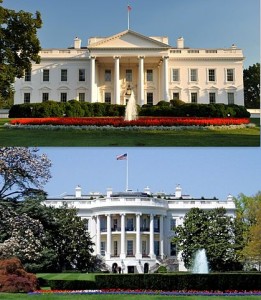You can find my entire review at Liberty Island as well.
I’m not what you would characterize as a typical fan of opera, be it of the buffa or not-so buffa variety. In fact, when a close friend of mine-who also happens to be a classically trained pianist-asked me whether the opera I intended to see today was dell’arte, I had to make a hasty trip to Wikipedia in order to answer her question. As it turns out, it did include a number of masques, all of which had either practical or symbolic significance, although it didn’t rely upon stock characters, and is not really what you could accurately describe as a comedy in any traditional sense of the term. Additionally, I’ve always had a healthy skepticism about the aesthetic appeal of this artistic medium, perhaps uncharitably viewing it as simply an elephantine, period version of As The World Turns or General Hospital, only carried out in a language which I don’t understand. The productions always struck me as a bit of a waste of the talents of composers such as Bizet or Puccini-or the vocal ingenuity of a singer like Renée Fleming.
That’s why I was pleasantly surprised by The Boston Tea Party Opera, currently featured at Fringe NYC, which seeks to frame contemporary national debates involving the encroachment of civil liberties and attenuation of Constitutional rights within the context of this nation’s politically tumultuous founding. The tenor is understood almost from the second scene of this dramatic work, when the Redcoats seeking to physically impose the draconian provisions of the Stamp Act march out onto stage garbed in modern-day SWAT team uniforms. The rapidly vanishing distinction between a standing army and domestic police departments is seemingly ripped from today’s headlines, but is actually a subject which has been argued and litigated at length since the creation of our constitutional republic, especially over the past century and a half.
As the first self-described libertarian opera, the philosophy behind this work is on proud display, yet the didacticism you anticipate doesn’t, for the most part, become overbearing or hinder the audience’s appreciation of the dazzling talents of the performers. The key themes it embodies are brought to bear in a series of historically pivotal speeches set to song, the most important being the speech by colonial lawyer and fervent American patriot James Otis (David Baldwin) decrying Great Britain’s use of writs of assistance, expansive search warrants that some contemporary scholars have noted might not have been quite as deleterious to natural rights as our current Patriot Act, let alone the edicts issued by FISA courts in certain cases involving terrorism investigations. Baldwin delivers a capital performance in this courtroom scene, articulating how the writs violate the rights of his countrymen in meticulous, melodic detail in a call and response with a patriotic chorus.
The libertarian ethos which pervades this production is perhaps most vividly illustrated by a song performed by Samuel Adams (Chad Cygan) as the first act nears its conclusion, which seeks to clearly delineate the differences between how the Sons of Liberty interpret the question of freedom, and how it is viewed by Loyalist functionaries such as the villainous governor of Massachusetts, Thomas Hutchinson (Ras Dia). The peroration of this speech comes when Adams roars that just government-as opposed to arbitrary tyranny-takes its form as a “servant-boy” to the will of a free, self-governed people. Hutchinson, naturally, begs to differ.
A recurring theme, one which dovetails with this generation’s Tea Party and its repeated thrusts against corporatist avarice, is the destructive impact of mercantilism upon both individual citizens and the free economy as a whole. The suppression of America’s domestic economy by Great Britain served a dual purpose, yoking the colonies to the mother country politically-by enfeebling a burgeoning bourgeoisie that was threatening England’s hold upon them-while simultaneously enriching the British factions which had a vested interest in maintaining the political status quo.
What I appreciate most about the Boston Tea Party Opera, however, isn’t the philosophy which undergirds it so much as the artistic beauty in which it is wreathed. It’s peopled by a uniquely gifted cast of actors. The choreography of Karen Gayle is visually stunning, an observation brought home to me by watching the sinuous dancing of Alyssa Sarnoff, a solo dancer who serves as a silent, energetic commentary on the events taking place on stage, acrobatically punctuating key moments during the emerging revolution against British colonial rule.
The contributions of composer/producer M. Zachary Johnson is the other breathtaking artistic discovery of this work, which manages to weave together elements of Romantic and modern music in a seamless way that mirrors the subtle narrative combination of historical eras in which liberty-and the continuous struggle to preserve it within the United States-is the primary issue at stake. As someone who enjoys the folkloric tradition of American music, I was impressed by the way in which the old and the new merged effortlessly.
That said, the real standouts of the Boston Tea Party are the performers. You forget how much effort, training and skill go into perfecting this art form until you witness it for yourself, something I was reminded of repeatedly throughout this opera. From the virtuosic voices of Robert Balonek (Paul Revere) and Michael Bragg (John Hancock) to the inspired performances of the choruses, you can’t ignore the talent on display before you. Which is why I urge anyone in the Tri-State Area reading this to to snag some tickets before the final performance this coming week at The Sheen Center.
You can purchase your tickets here! Whether you be patriot or Tory, you’ll won’t regret the decision.








Recent Comments